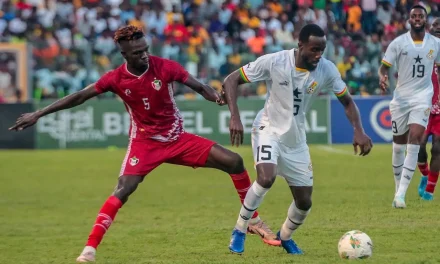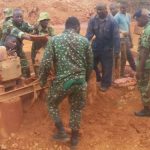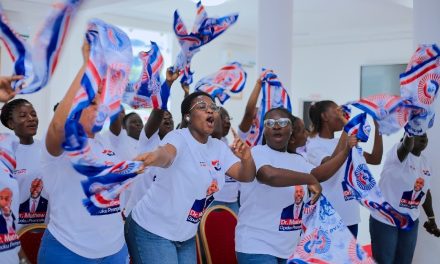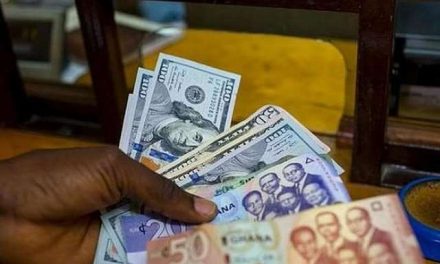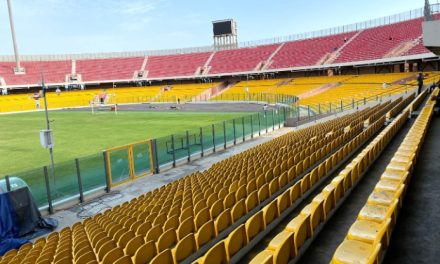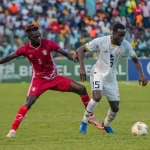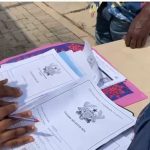
“Rape me, not my daughter,” women in Sudan’s civil conflict tell the BBC of sexual assault.
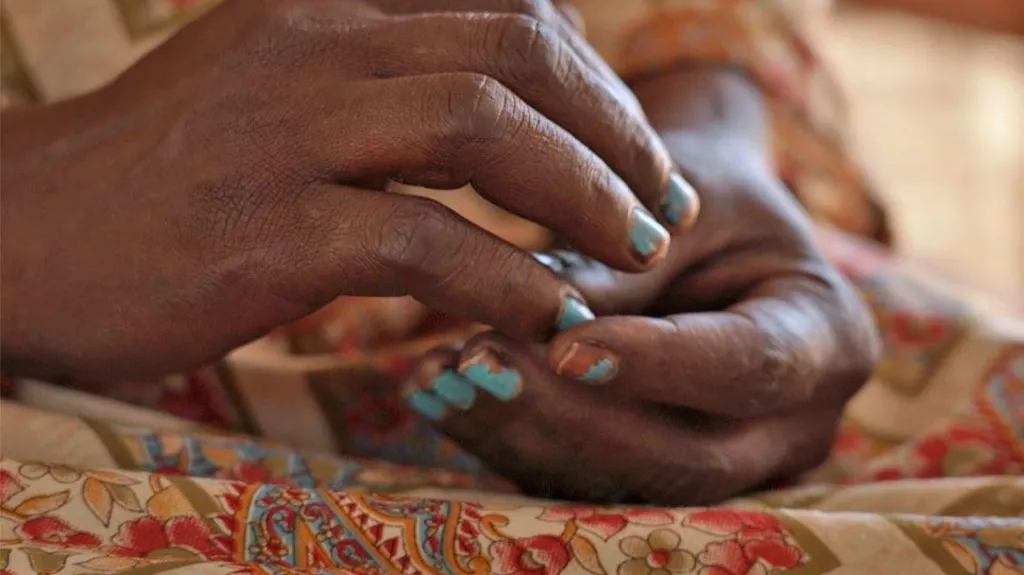
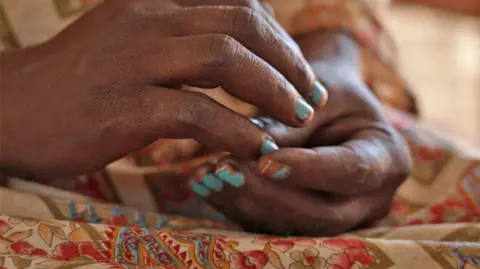
The army has begun a significant offensive in the nation’s capital, Khartoum, targeting areas held by its fierce foe, the paramilitary Rapid Support Forces, following 17 months of a bloody civil war that has destroyed most of the nation.
At the beginning of the fight, the RSF took control of much of Khartoum, but the army maintained control over Omdurman, the twin city located directly across the Nile.
However, there are still locations where individuals are able to pass between the two sides.
At one such location, I ran into a group of women who had trekked for four hours to a market on the outskirts of Omdurman, which is under army control and has cheaper food.
The women had travelled from Dar es Salaam, an RSF-held region in Sudan.
They told me that their husbands were no longer leaving the house because RSF soldiers had beaten them, syphoned their earnings, or had held them and demanded money in exchange for their freedom.
“We put up with this struggle so that we can provide for our kids.” One said, “We need food; we’re hungry.”
Note: There are some graphic details in the story.
I wondered, were the women any safer than the men? How about sexual assault?
The cacophony of voices subsided.
One then burst forth.
“Where is the globe located? Why won’t you assist us? She spoke, tears streaming down her cheeks as she spoke in a torrent.
“So many women in this room have experienced sexual assault, but they never discuss it. In any case, what difference would it make?
She said, “Some girls, the RSF makes them lie in the streets at night.” “The RSF holds them for five or six days if they return from this market late.”
Her mother was crying as she sat there, her head on her hand. Not far away, other ladies began to cry as well.
She said, “You in your world, would you leave her if your child went out?” “Why don’t you go find her? Tell us, nevertheless, what we can do. Nobody loves us, and nothing is in our control. The world is where? Why don’t you assist us?
I said to the RSF: ‘If you want to rape anyone it has to be me.’ They hit me and ordered me to take off my clothes. Before I took them off, I told my girls to leave
Travellers described being subjected to lawlessness, looting and brutality in a conflict that the UN says has forced more than 10.5 million people to flee their homes.
But it is sexual violence that has become a defining characteristic of the protracted conflict, which started as a power struggle between the army and the RSF but has since drawn in local armed groups and fighters from neighbouring countries.
The UN’s High Commissioner for Human Rights, Volker Turk, has said rape is being used as “a weapon of war”.
A recent UN fact-finding mission documented several cases of rape and rape threats from members of the army, but found that large-scale sexual violence was committed by the RSF and its allied militias, and amounted to violations of international law.
One woman the BBC spoke to blamed the RSF for raping her.
We met her in the market at the crossing, aptly named Souk al-Har – the Heat Market.
Since the war began the market has expanded across the barren land on a desert road out of Omdurman, attracting the poorest of the poor with its low prices.
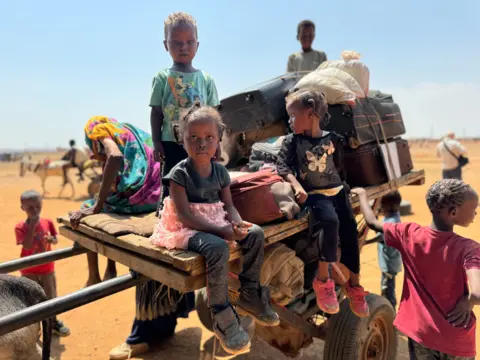 BBC / Ed Habershon
BBC / Ed HabershonMiriam, not her real name, had fled her home in Sudan’s Dar es Salaam to take refuge with her brother.
She now works in a tea stall. But early in the war, she said, two armed men entered her house and tried to rape her daughters – one 17 years old and the other 10.
“I told the girls to stay behind me and I said to the RSF: ‘If you want to rape anyone it has to be me,’” she said.
“They hit me and ordered me to take off my clothes. Before I took them off, I told my girls to leave. They took the other children and jumped over the fence. Then one of the men laid on me.”
The RSF has told international investigators that it has taken all the necessary measures to prevent sexual violence and other forms of violence that constitute human rights violations.
But the accounts of sexual assault are numerous and consistent, and the damage has a lasting impact.
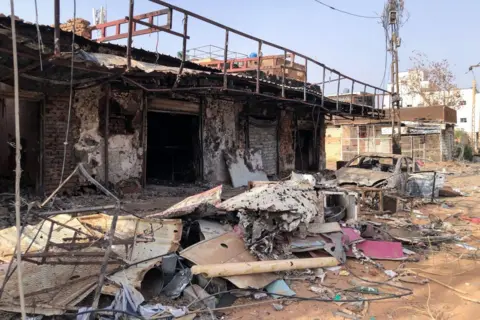 Getty Images
Getty ImagesSitting on a low stool in the shade of a row of trees, Fatima, not her real name, told me she had come to Omdurman to deliver twins, and planned to stay.
One of her neighbours, she said, a 15-year-old girl, had also become pregnant, after she and her 17-year-old sister were raped by four RSF soldiers.
People were awakened by screams and came out to see what was going on, she said, but the armed men told them they would be shot if they did not go back into their houses.
The next morning, they found the two girls with signs of abuse on their bodies, and their elder brother locked in one of the rooms.
“During the war, since the RSF arrived, immediately we started hearing of rapes, until we saw it right in front of us in our neighbours,” Fatima said. “Initially we had doubts [about the reports] but we know that it’s the RSF who raped the girls.”
The other women are gathering to begin the trek back home to areas controlled by the RSF – they are too poor, they say, to start a new life like Miriam has done by leaving Dar es Salaam.
For as long as this war goes on, they have no choice but to return to its horrors.
Source:BBC

